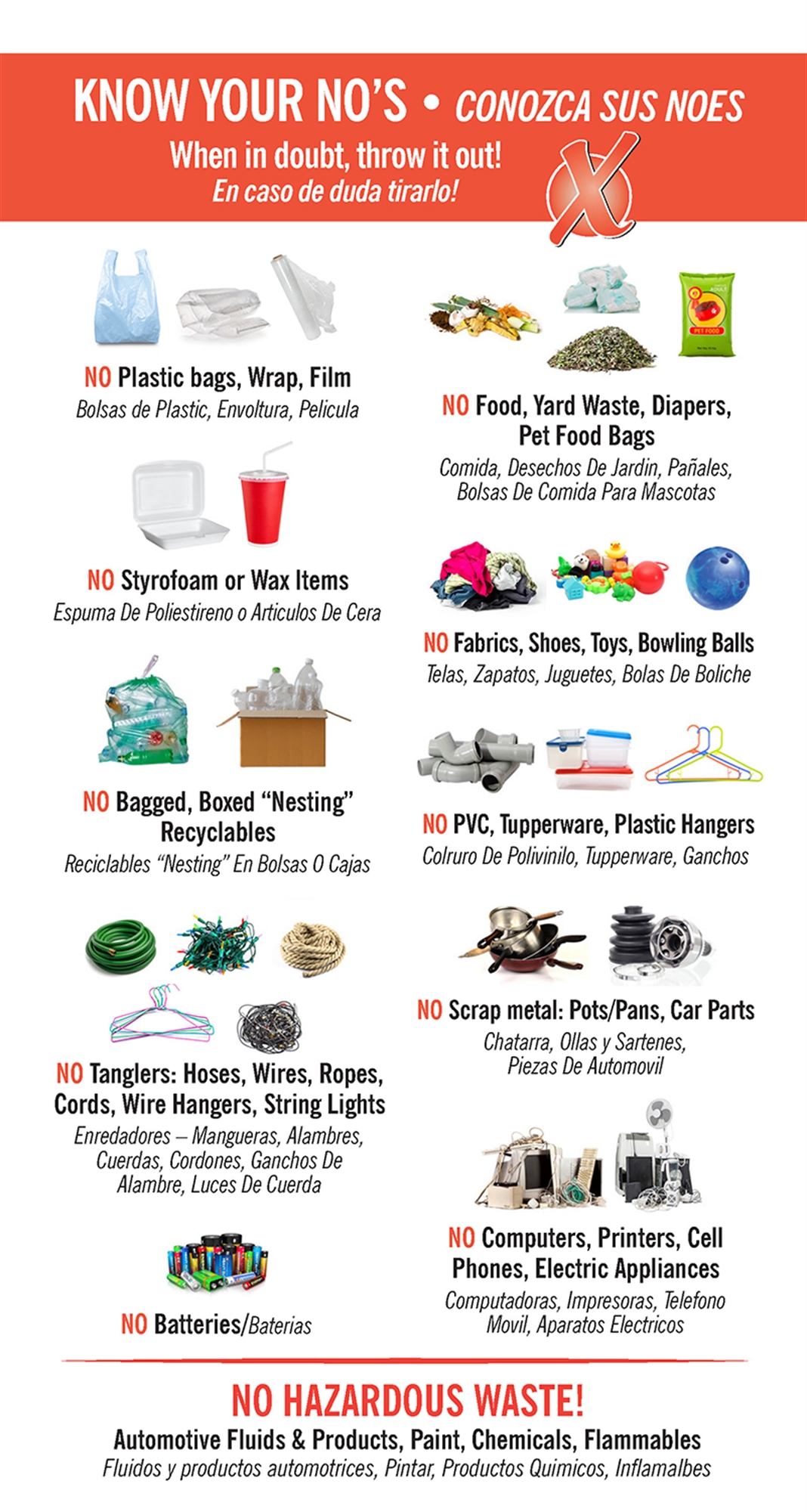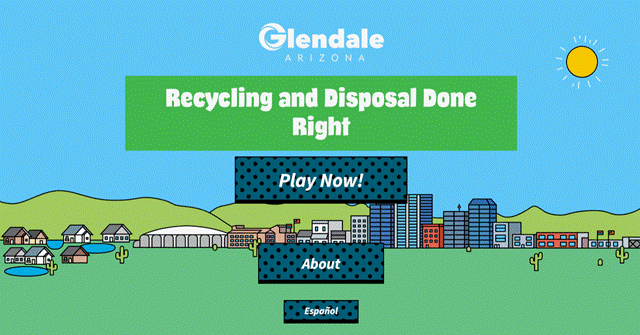Recycling

The Recycle team is working hard to improve the contamination and participation of our curbside recycling program. The team has set a goal of less than 20% contamination by 2025. To achieve this goal, a new education and outreach program has been initiated. Please keep an eye out on social media for weekly recycling tips and information. See the FAQ section below for more information on what is accepted in Glendale’s recycling program.
What is Contamination?
Recycling contamination occurs when:
- Non-recyclable materials are placed in the recycle container.
- Plastic bags are placed in the recycle container.
- Yard clippings/green waste are placed in the recycle container.
- Trash and food waste are placed in the recycle container.


Do you know how to Recycle Right?
Test your recycling skills in the “Recycling and Disposal Done Right” game. Learn where to place items for Recycling, Bulk Trash, HHW, and Garbage.
Select the following image to Play!

When are my Services?
Interactive Collection Map

Why Recycle: Benefits of Recycling
Recycling provides many benefits to our environment. By recycling our materials, we create a healthier planet for ourselves and future generations.
- Conserve natural resources: Recycling reduces the need to extract resources such as timber, water, and minerals for new products.
- Climate change: Recycling and composting of municipal solid waste (MSW or trash) saved over 193 million metric tons of carbon dioxide equivalent in 2018.
- Energy savings: Recycling conserves energy. For example, recycling just 10 plastic bottles saves enough energy to power a laptop for more than 25 hours.
- Waste and pollution reduction: Recycling diverts waste away from landfills and incinerators, which reduces the harmful effects of pollution and emissions.
Recycling FAQ’s
What is accepted for curbside recycling?

New Additional Items now being accepted:
- Glass Bottles and Containers
What is not accepted in curbside recycling?
How do I prepare my recyclables?
Recyclables need to be clean, dry and empty. After finishing with a recyclable item, rinse as necessary to remove any food. There is no need to remove caps or labels, but do remove non-recyclable items like plastic cereal box inserts. Cardboard needs to be empty of all packing materials and broken down. Do not “nest” items together, this includes putting recyclable items inside boxes, jugs, or other containers.
Do I have to wash my recyclables?
All recyclables must be relatively clean, empty, and dry. You do not need to put items through a dishwasher. This is especially important during our current drought period. An example of relatively clean, empty, and dry would be a mayonnaise jar that has been wiped clean of residue with a spatula or a soda bottle drained completely in the sink. Both of those are clean and dry.
Why can't I recycle plastic bags?
Plastic bags (a.k.a. film plastic) are made of varying types of plastic and are impossible to sort using the current processing technology. Plastic bags wrap themselves around the conveyor belt rollers and damage processing equipment. Due to these processing problems and the dirty/contaminated condition of plastic bags in a commingled program, they are not recyclable in Glendale’s program. Everyone is encouraged to reuse plastic bags as much as possible. Reuse them to bag and tie your garbage and grass. Reuse them at the grocery store. In addition, many grocery stores have installed plastic bag recycling programs. Utilize these programs and do not place plastic bags in your recycling container.
Why do I see Inspectors looking through my container?
You may see inspectors in your neighborhood inspecting containers. Recycling containers found to be contaminated will receive a red tag with information on the correct items to recycle. Residents are required to remove the incorrect items, clean the container (if needed), and only place the correct items in for future collection. If the inspector finds contamination for a second time, the container will be removed, and the resident will not be eligible to participate in the recycling program for three months.
Along with Recycling, inspectors also check Bulk Trash piles for proper placement so that the piles may be picked up and serviced safely. They inspect the refuse container as well to make sure everything is bagged and tied to abide by all county regulations. The Inspections Team is out there to protect you and your neighborhood.